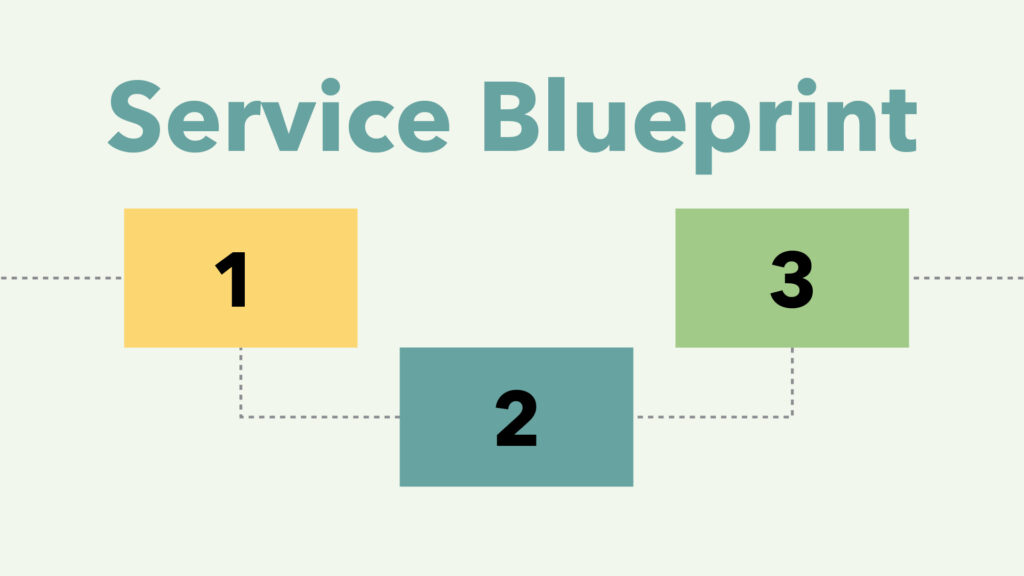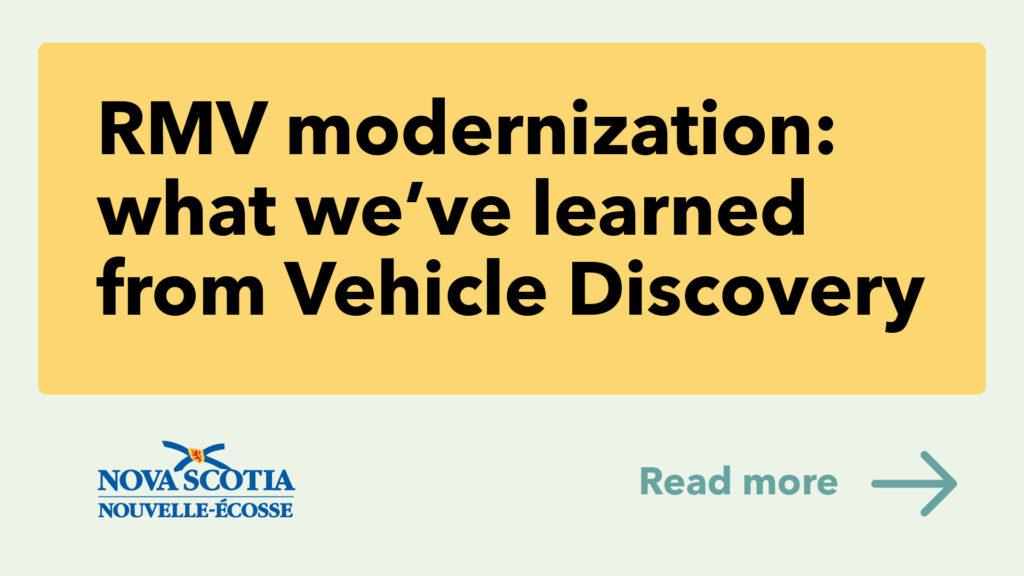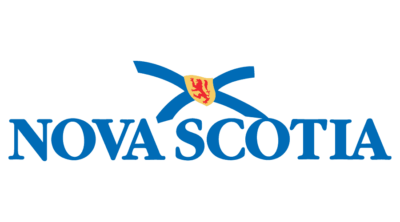The Challenge
Vehicle Services is one of the largest public sector service delivery teams in Nova Scotia, serving almost 2 million citizen-facing transactions in a year and covering all vehicle-related services in the province—registering or transferring a vehicle, purchasing a vehicle, renewing license plates, dealer services, and more.
Previously, Nova Scotia’s Registry of Motor Vehicles (RMV) has been viewed as inefficient, traditional, and labour-intensive. Recent modernization and digital transformation initiatives are stiving to transform the service into one that is modern, digitally enhanced, and user-friendly.
This project was true collaboration across many Government of Nova Scotia teams, including Service Nova Scotia, the Department of Public Works, and the Department of Cyber Security and Digital Solutions.
In early 2024, the Davis Pier’s Digital Transformation Team partnered with Kainos to design, deliver, and execute a Discovery project in collaboration with Nova Scotia’s RMV Vehicle Services and its many intergovernmental partners.
The Approach
Over an 8-week sprint, the team worked collaboratively and iteratively to identify key pain points and opportunity spaces for the Vehicle Services Discovery project. Key project activities included:
- Project Initiation and Alignment Sessions. In this phase, we worked with the client team to prioritize project alignment and secure buy-in from a broader group of internal partners. This involved conducting a dedicated project alignment workshop, convening a larger group of core collaborators and other invested parties. The effort cultivated a shared understanding of project objectives, risks, and opportunities for the Discovery project.
- Research Plan and User Recruitment. The team developed a research plan to guide the discovery research phase effectively. The plan outlined the process for consulting relevant audiences to gather insights from all sides of the process. It also provided recommendations and action plans for participant recruitment and screening, conversation guides, and participation compensation.
- Research. We conducted comprehensive secondary research to supplement our work and provide a clear understanding of the current landscape of vehicle-related activities and services within the Registry of Motor Vehicles (RMV) and the Motor Vehicle Act (MVA).
- User Research. Our team actively engaged with external and internal users, leveraging human-centred and service design methodologies to better understand, explore, and identify pain points, barriers to service delivery, and opportunities for service delivery. Our research methods included 1:1 interviews, small focus groups, Customer Service Representative (CSR) training sessions, and job shadowing with internal staff and RMV Customer Service Representatives.

The Outcome
Key insights, learnings, and opportunities identified through the discovery work were compiled and synthesized into a comprehensive final report and service blueprint. The final synthesis examined the needs of citizens, dealers and other key external stakeholders and identified current pain points across operational, technical, and policy elements.
Future opportunities for Vehicle Services were explored, and a vision for a modernized and user-friendly future state was developed, catering to the needs of both staff and service users.
A key outcome of the project is the recommendation to establish a “Vehicles Workstream” within the RMV modernization team to focus on developing an Alpha for a Vehicle Registrations Tool. This tool will address the pain points and inefficiencies within vehicle registration processes, while modernizing the service delivery experience for customer service representatives and, eventually, the customer experience of citizens and dealers.
Next steps for this transformative work include discovery phases for inventory and citizen wayfinding initiatives.

The Impact
By exploring and prioritizing the pain points and inefficiencies across Vehicle Services, this project is contributing to the modernization of the RMV and moves the workstream towards delivering efficient, simpler, and citizen-centric services that Nova Scotians need.
For instance, the creation of the Vehicles Workstream and the development of the Vehicle Registrations Tool will streamline processes, improve service delivery, and enhance user experience. The project’s impact extends to benefiting the team delivering the service and aligns with their mandate of creating a more efficient and citizen-centric RMV.

